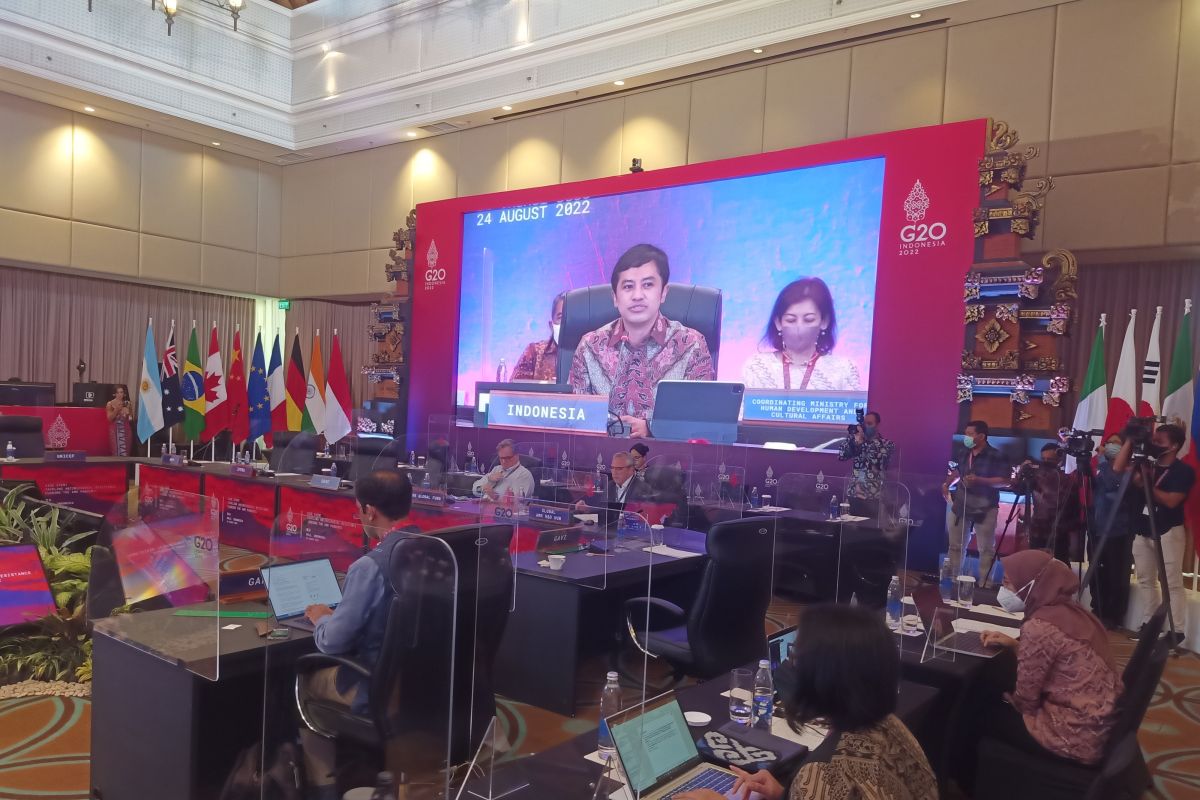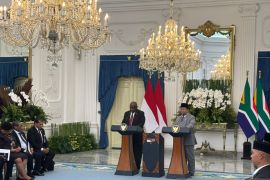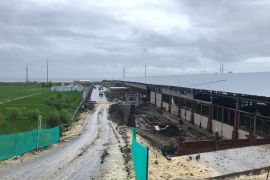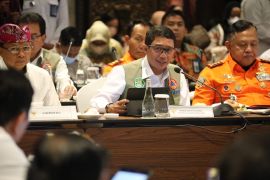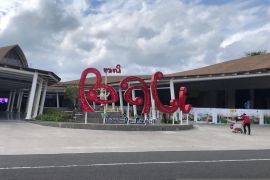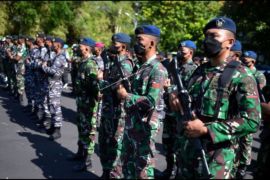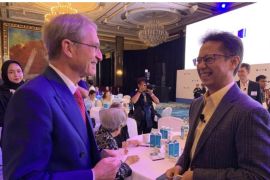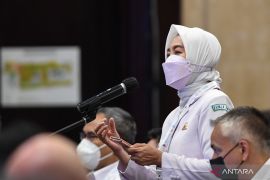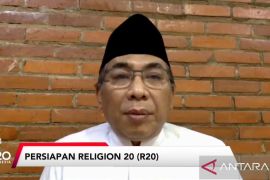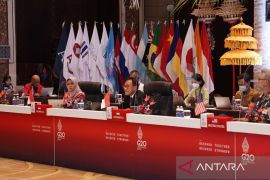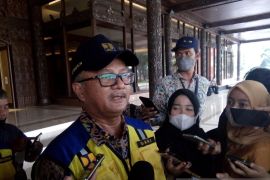The biological phenomenon is known as Antimicrobial Resistance (AMR), wherein antimicrobials, in the form of antibiotics, antiviral, antifungal, antiparasitic, antituberculosis, and others, are no longer effective in overcoming infections caused by bacteria, germs, viruses, fungi, and/or parasites in the patient's body.
The Lancet International Scientific Journal in January 2022 stated that 643,381 deaths resulted from malaria, 700,660 deaths from breast cancer, 863,837 deaths due to HIV/AIDS, and 1.27 million deaths due to AMR.
The Indonesian Health Ministry called the figure as a surprising report. If the COVID-19 pandemic hit like a tsunami, then AMR was more devastating, like a sea tide, with its prevalence silently continuing to increase.
Antibiotics began to be used on a massive scale to treat patients some seven decades ago. Antibiotics were able to save scores of lives, especially during World War II.
However, the G20 delegation at the forum in Bali believed that antibiotics in the current era have reached the point of being misused, obtained without a doctor's prescription, and often misused in humans, animals, plants, and also the environment.
Related news: Indonesia to lead save the earth actions at G20 JECMM
The effectiveness and open access to antibiotics lead to overuse, with most people using antibiotics to cure diseases caused by germs, without further supervision.
False treatment protocols may worsen the patients’ infections and lead to high mortality rates since some bacteria acquire resistance to antibiotics.
The World Health Organization (WHO) classifies AMR as a serious threat that is no longer predicted as a future pandemic, since it has occurred in some parts of the world, and has the potential to affect anyone, at any age, and in any country.
Impact
The side event of the G20 Health Working Group in Nusa Dua, Bali, was virtually attended by Minister of Maritime Affairs and Fisheries, Sakti Wahyu Trenggono; Minister of Environment and Forestry Siti Nurbaya Bakar; Assistant Director General of Anti-microbials from the WHO Hannan Balkhy; and experts in the field of animal health, and food and agricultural organizations.
Experts estimate that AMR has the potential to cause the global annual gross domestic product (GDP) to fall by 3.8 percent in 2050 and force 28 million people to live in poverty.
Related news: Baswedan confirms 12 mayors, governors to attend G20 U20 meeting
Postgraduate Director from YARSI University Professor Tjandra Yoga Aditama, who was a speaker at the forum, said that currently, one child in middle- and small-income countries died every three minutes due to blood infections caused by bacteria resistance.
Delegates at the meeting also calculated the risk of an additional health burden in each country of up to Rp1 trillion due to AMR. In 2016, the Global Review estimated that no less than 10 million deaths in the world would continue to increase until 2050 if AMR were to be ignored.
AMR, also known as a hidden pandemic, triggers the highest number of deaths, especially in tropical areas, such as Indonesia. However, not all countries have national-scale data on the impact of AMR.
The WHO then drew attention to gaps between countries in collecting AMR data. For instance, in the quality of diagnosis and prevention of early infection.
The WHO also encourages all countries to increase knowledge of AMR through periodic surveys to measure the rate of cases and prepare health protocols to anticipate the worst-case scenario.
Hence, all countries and sectors are urged to shoulder the responsibility to address the challenges of AMR through a proactive approach in reporting cases and sharing successes and failures in the efforts to overcome the disease.
Stronger health systems are important to address AMR and ensure that antimicrobials remain effective for future generations.
Related news: G20: 3rd HWG meeting to discuss antimicrobial resistance
G20’s reaction
In 2018, Southeast Asia WHO prepared a work plan for all countries in the form of an AMR National Action Plan through the implementation of data collection of member countries in Southeast Asia to be included in world data of the Global Antimicrobial Resistance and Use Surveillance System (GLASS).
This effort is also incorporated in the Tripartite AMR Country Self-Assessment Survey (TrACSS) Program to monitor the continuity of the AMR program, including in Indonesia.
World Antimicrobial Awareness Week, held annually, is expected to increase understanding and advocacy at the global, regional, and country levels.
Related news: Fundraising commitment for FIF targeted to reach US$12.5 billion
Indonesia, as the holder of G20’s presidency this year, has outlined a strategic plan and roadmap to control the impact of antimicrobial resistance on livestock and humans.
Indonesia has enacted regulations on the use of antibiotics in the field of animal husbandry and animal health as stipulated in Law Number 18 of 2009 concerning animal husbandry and animal health that prohibited the use of antibiotics as food additives.
Indonesia also prohibits the use of Colistin in livestock that will be consumed by humans through Decree of the Minister of Agriculture Number 9736 of 2000.
Colistin, as an antibiotic drug to treat infectious diseases caused by bacteria, is the last choice for animal health or human health in Indonesia.
The increasing human population and activities affect environmental degradation and bring a significant impact on the complexity of health threats and the development of the epidemiology of new infectious diseases in the world.
The Indonesian Ministry of Agriculture has taken on a role in the "One Health" approach with all relevant parties globally and nationally in order to achieve sustainable public health and welfare.
Control of AMR is also mandated by Presidential Instruction Number 4 of 2019 concerning capacity building in prevention and detection to respond to global pandemic disease outbreaks and emergencies in nuclear, biological, and chemical sectors.
AMR is a serious threat to the sustainability of national health security. Hopefully, the G20 reaction at this year's AMR Side Event Forum will reach the right formula to overcome the problem.
Related news: Pelita Harapan University establishes G20 studies center
Related news: Bali can become location for genomic data research center: Minister
Translator: Andi Firdaus, Resinta S
Editor: Fardah Assegaf
Copyright © ANTARA 2022
